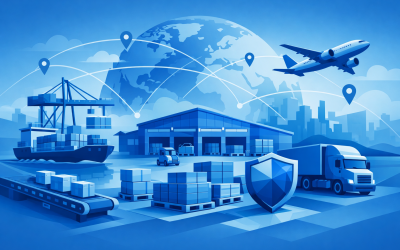This is part two in a two-part series. Read part one here.
In part one of our two-part series designed to help you choose your first fulfillment company for your eCommerce business, we tackled the basics questions every company should ask their future fulfillment partners. In part two, we’re getting into those points that are specific to an online business — so pay attention and take notes.
Once you’ve made your short list of the 3rd party logistics (3PL) companies you’re interested in working with, go back and ask about these important areas related to your business:
Customer call handling. Some fulfillment houses will also offer optional customer service operators (i.e., a call center). When your customers call to ask a question about your policies, products or to place an order, they’re routed to the call center run by your fulfillment company instead of your office. This arrangement can save you a lot of time, especially if you’re short on staff to answer the phones. If you think you’d take advantage of their phone service, make sure to ask about the hours of operation — they aren’t all manned 24/7.
Reverse logistics. Nobody wants to have to return a product, but when it happens, it’s good to know that the company handling the return is experienced and will follow your instructions to the letter. Ask about any future logistic company’s reverse logistics policies, as well as how quickly they can generally process returns. After all, the faster your customers have their incorrect items replaced, the happier they will be.
Software integration. Not too terribly long ago, you’d be faxing orders over to the warehouse, but today it’s all about the software. For all the advances made in logistics software in the last few years, many packages still can’t talk to one another for various reasons. Before you sign on the dotted line, make sure your software is compatible with that of your warehouse and fulfillment, or you’ll be adding an additional expense to the process.
Data security and portability. Your data, like your other business assets, is valuable and must be protected. Ensure that the fulfillment company you’re networking with provides you with the ultimate in protection and accessibility. If you want to access your data while you’re on the go, find a fulfillment center that offers a secure, cloud-based data solution, so you can check in from anywhere you might end up.
Choosing your fulfillment partner is just like hiring a top level employee. Since they will be a back-end extension of your business, you want a logistics company who can act like your right hand, even when you’re not around to guide them. Take your time when interviewing candidates and you’ll quickly reap the benefits of outsourcing.









